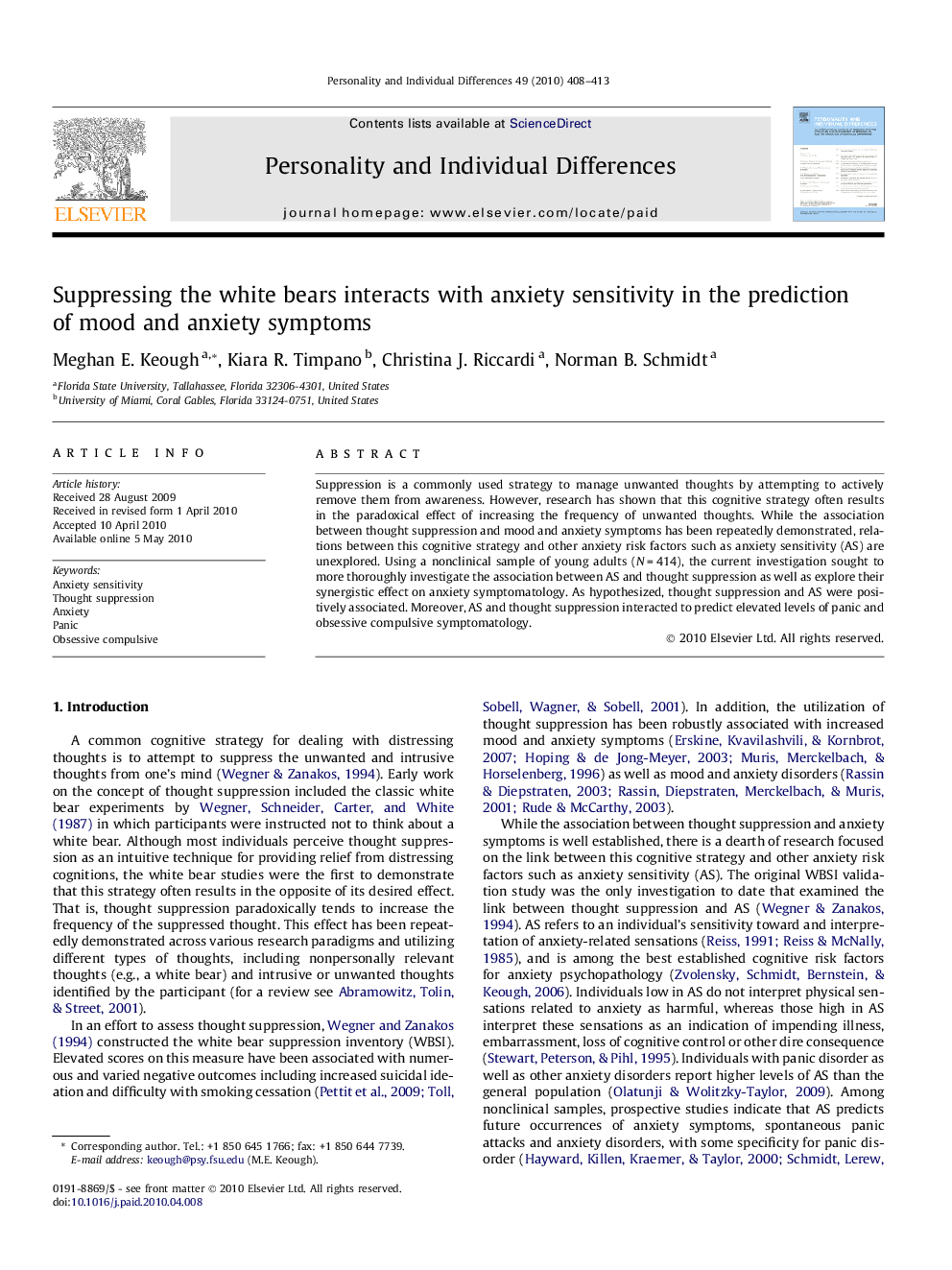| کد مقاله | کد نشریه | سال انتشار | مقاله انگلیسی | نسخه تمام متن |
|---|---|---|---|---|
| 891855 | 914058 | 2010 | 6 صفحه PDF | دانلود رایگان |

Suppression is a commonly used strategy to manage unwanted thoughts by attempting to actively remove them from awareness. However, research has shown that this cognitive strategy often results in the paradoxical effect of increasing the frequency of unwanted thoughts. While the association between thought suppression and mood and anxiety symptoms has been repeatedly demonstrated, relations between this cognitive strategy and other anxiety risk factors such as anxiety sensitivity (AS) are unexplored. Using a nonclinical sample of young adults (N = 414), the current investigation sought to more thoroughly investigate the association between AS and thought suppression as well as explore their synergistic effect on anxiety symptomatology. As hypothesized, thought suppression and AS were positively associated. Moreover, AS and thought suppression interacted to predict elevated levels of panic and obsessive compulsive symptomatology.
Journal: Personality and Individual Differences - Volume 49, Issue 5, October 2010, Pages 408–413